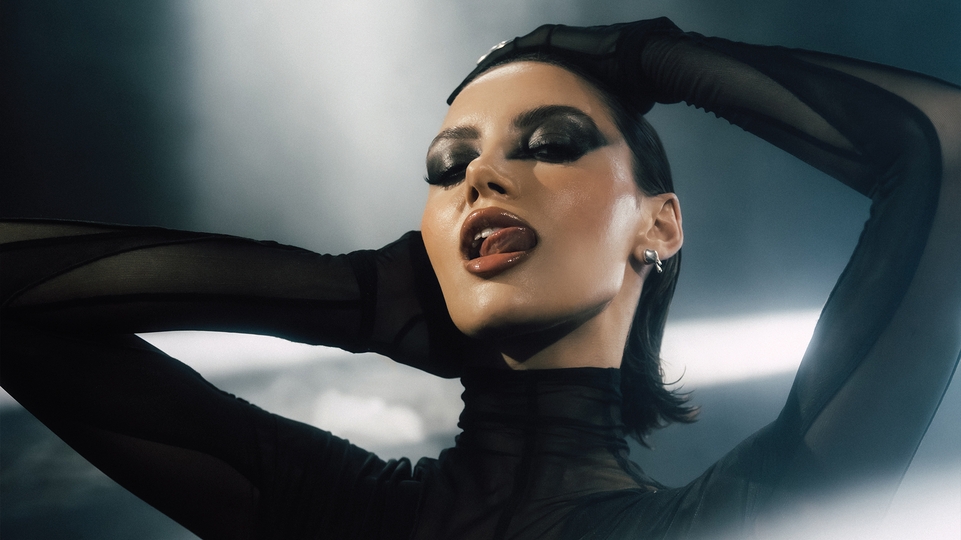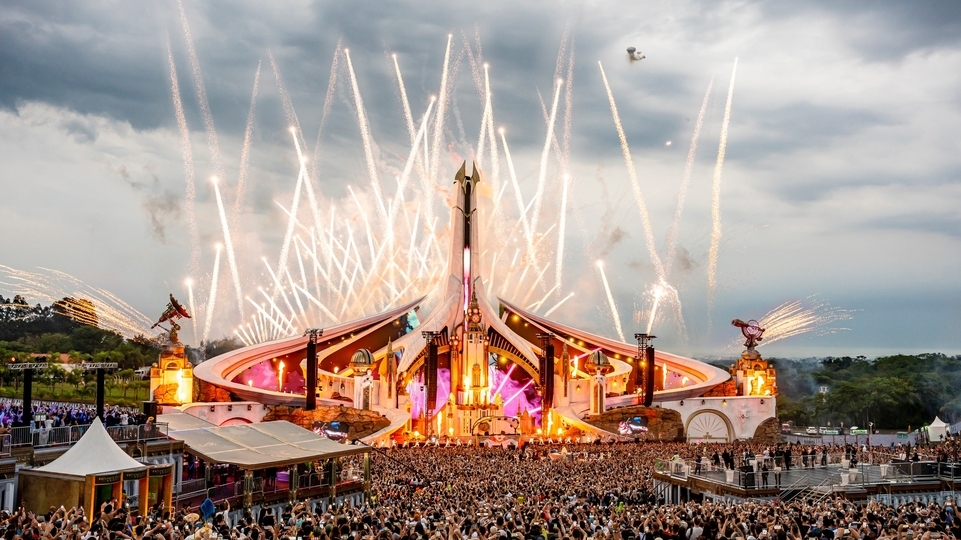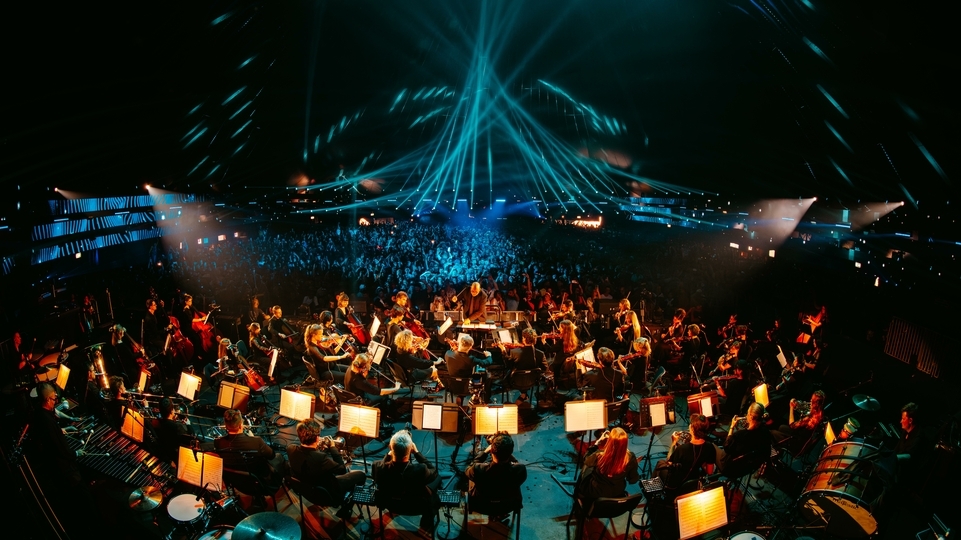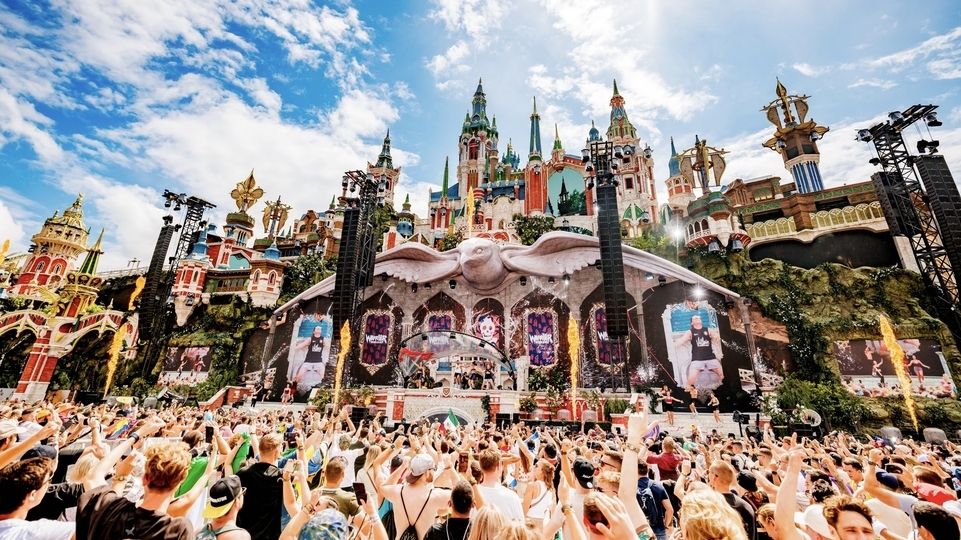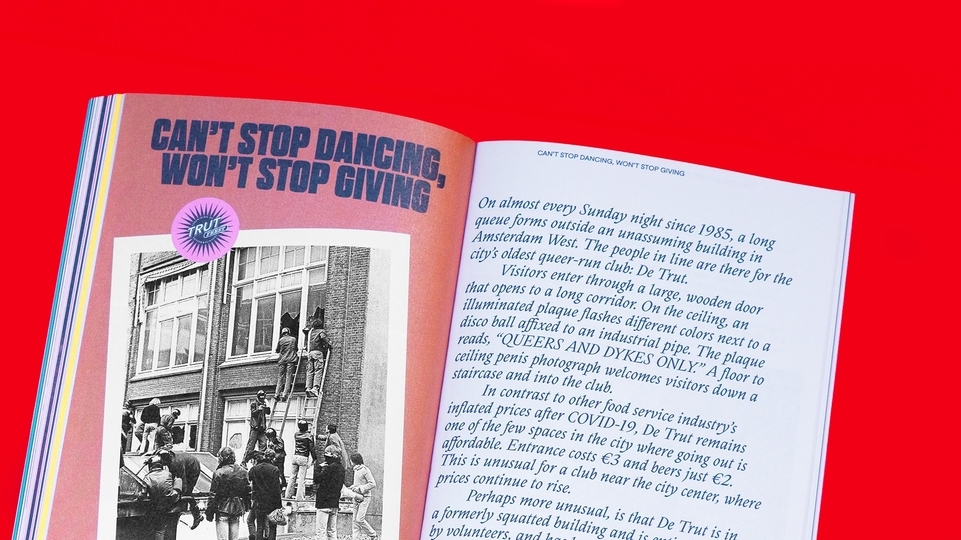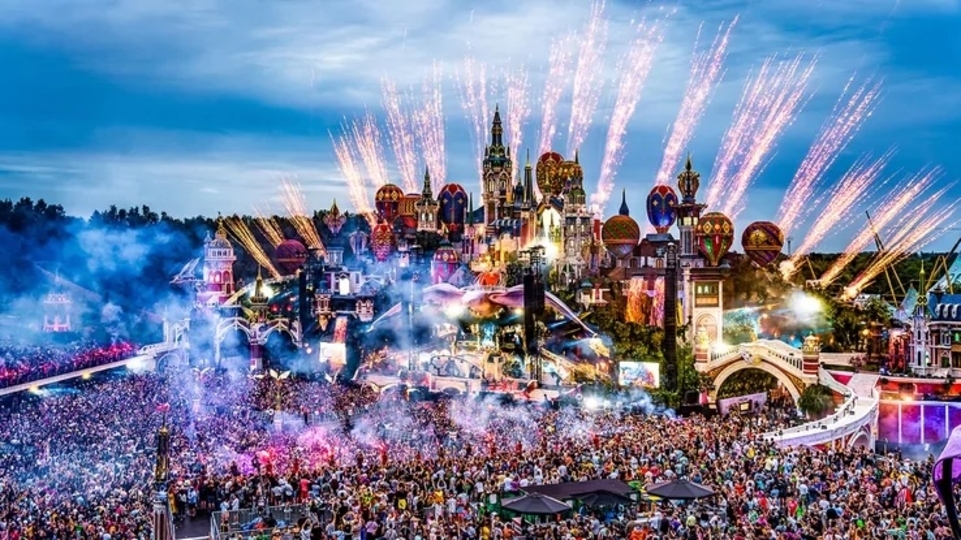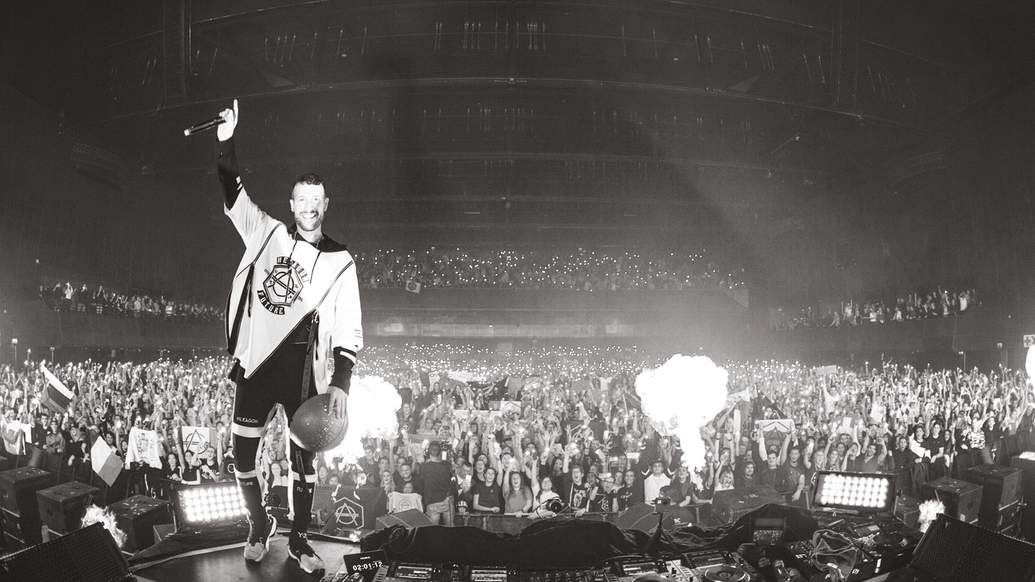
Don Diablo is the world-conquering future house pioneer
Don Diablo, or as he’s affectionately known in the DJ Mag North America office, Big Don, is an all-round entrepreneur. Though the Dutchman has been used and abused by the industry, enduring numerous career setbacks, self-doubt and personal bereavement, he’s channeled it all into forward momentum, becoming a world conquering producer, a role model and a force for change in the process. We meet him at his home in Amsterdam to get the full story, and find out what the future holds...
In East Amsterdam, tucked away on what seems like a sleepy street (though that may just be due to the icy weather), lies the home of Don Pepijn Schipper. Freshly renovated — he moved in just the day before our interview — it’s a grand old building of wooden beams and stained glass, but with a slick, modern makeover; think glass walls, minimalistic furniture and the obligatory pool. It’s all very grown up, though a Cribs-esque tour later reveals Don’s inner child is still very much at play, given the pinball machine in his living room and murals of his beloved Star Wars adorning the walls. The house and all its niceties are evidence of Don’s hard-earned success. After more than two decades of professionally producing, and a career that’s swung violently from high to low more times than a fairground High Striker, he’s finally able to treat himself — and maybe, just maybe, relax a little.
2018 marked Don’s biggest year to date. His sophomore album ‘Future’ landed after a 10-year wait. That was followed by his charity tour, Better Future, which raised money for the Dutch Cancer Trust by asking for donations from fans instead of a standard ticket (with a minimum of just €5 to allow those not so well-off to attend). And he picked up numerous accolades, including the Highest Future House award in DJ Mag’s own Top 100 DJs poll. This trophy (won for the second year in a row) coincided with Don finally breaking into the list’s Top 10, jumping up four places from last year to No.7, just behind iconic names such as Armin van Buuren, David Guetta and Tiësto. In fact, Don is now the highest placed DJ never to have won — a sign of future glory? Only time will tell.
For now, Don sees his climb to the coveted Top 10 as “a present,” and although he’s wary of the criticisms leveled at the poll, he’s grateful for the support from fans. “Breaking the Top 10, that’s a whole different level,” he says, casually munching on a carrot. “Every single artist in the Top 10 is successful in their own right. I’m not a hard campaigner, I let it flow like my heroes in the DJ scene, and that makes it extra special for me.”
He recalls having a poster of the Top 20 on his wall as a teenager — populated by DJs like Fatboy Slim, Sasha and Carl Cox at the time — and muses on how the poll isn’t just an indicator of relevancy within the industry, but also works on a much more personal level. “For my family, it’s very hard to measure how successful I am,” Don says. “They don’t go to a show in Brazil where you play for 50,000, it doesn’t mean anything for them if I have a gold record — it’s tangible but it’s not tangible, it completely goes over your head,” he says. “But when I entered this Top 100, and they knew I had a poster over my bed, they were like, ‘OK this is becoming something, it’s getting bigger.’”
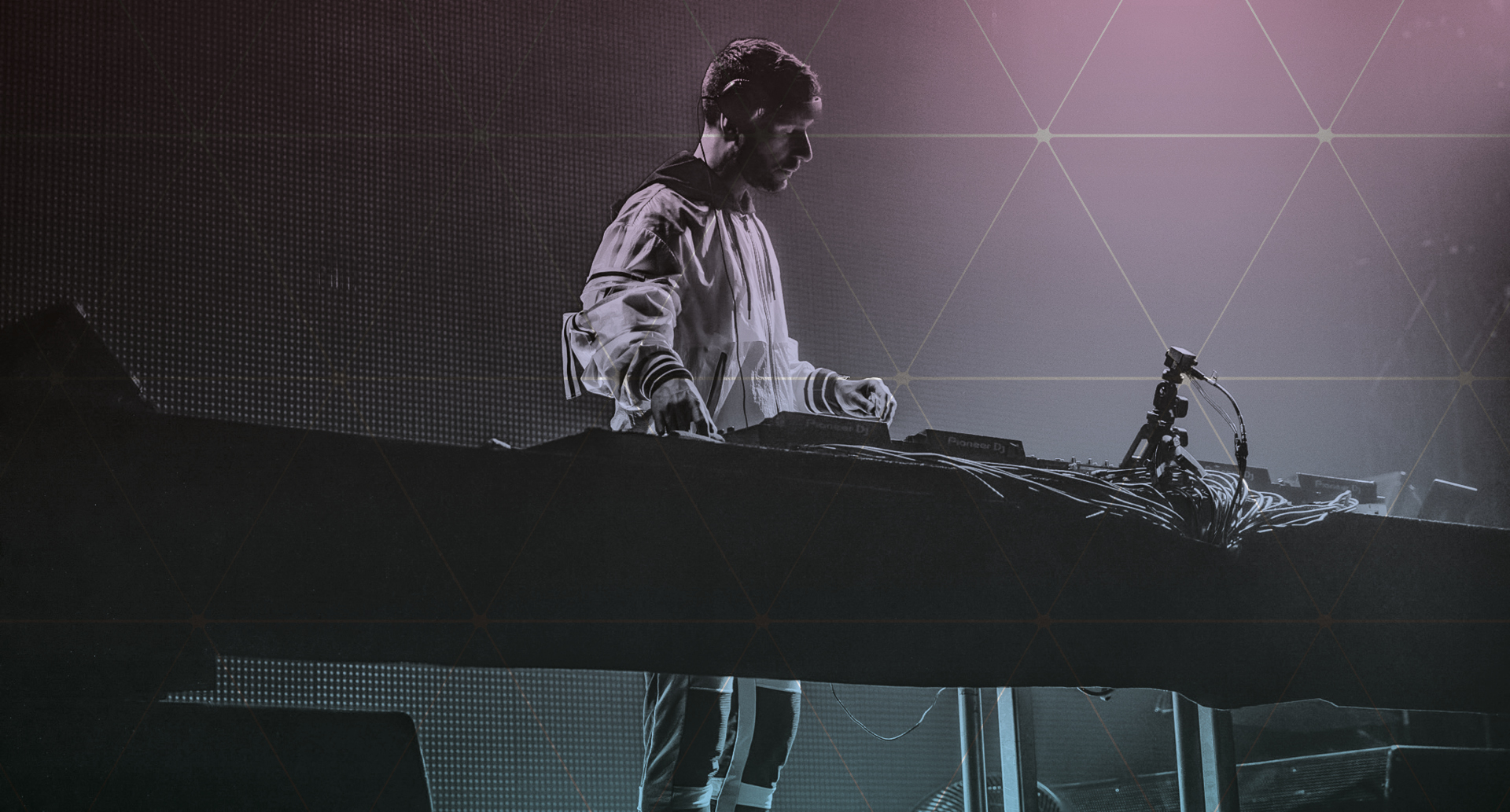
“If you want great success you need to offer great sacrifice. Otherwise why would you be so lucky? You can’t just carelessly expect things from the universe”
FAMILY
To say family is important to Don would be a gross understatement. He talks about finding out that his grandfather was one of his biggest fans after he’d passed away, when Don’s mum discovered a cache of newspaper clippings hidden in the bag for his oxygen tank. “He was always like, ‘So Don, Armin van Buuren and Tiësto, they’re Dutch DJs, why are they in this Top 100 in the Top 10, and you’re not even in the list? But you’re also very good, right?’” Don laughs. “Later on, as I started going to the stores where he used to buy groceries, they’re like, ‘Oh you’re Henk’s grandson... he was constantly showing articles and was the proudest grandfather ever.’”
Don’s mum, too, is a constant feature throughout our conversation; he famously took her up onto the main stage at Tomorrowland in 2017, and when chat turns to his winning the Audi Untaggable award during the Top 100 DJs ceremony that same year, Don adds, “I still don’t know what that means, but hey, I was invited on a stage, somebody took a picture and my mum was proud.” Then there is Don’s father, whose tragic passing six years ago Don has always spoken candidly about. He credits his father’s final words with giving him the drive to get back into music after years of disappointment — a motivation that has led him directly to his current success.
“I had a conversation with him, it was the last one we had, and he was like, ‘It’s over before you know it, and why are you so hard on yourself? Why do you have the feeling that you have to bleed for everything, every shred of success or every bit of love you get in your life? It’s OK to accept it,’” says Don. “I literally never drank in my life, never had a cigarette, never did drugs, never tried anything, ’cause I always felt like, if you want great success you need to offer great sacrifice. Otherwise why would you be so lucky? You can’t just carelessly expect things from the universe. That’s still my philosophy.”
Don believes it’s his duty to follow his father’s advice; doing so has, “completely changed my mind state,” he says. “I went in a more clear direction, and I made records that started making sense together, I created a sound, but that took me many years of trying and failing, and falling flat on my face — I think that’s still what artistry should be about.” He tries to maintain a positive outlook, and speaks matter-of-factly about the pitfalls of the wider dance music world. “It’s shocking the amount of assholes that are in this industry, and the amount of people that are circling around the concept of music and art and dance music just for the money and the fame and the partying, it really breaks my heart,” he says.
THE DARK SIDE
Don knows more about that than most. The story of his career is one littered with the brutal realities often hidden behind the glossy sheen of the superstar DJ. His first taste came when he was just 14 years old; Don had signed a contract with a record label, and was regularly putting out music, often ghost producing for other DJs. “It wasn’t really a thing back then, now it has a name, but back then I was just producing for other DJs, other producers, it was normal, it wasn’t questioned,” he says. The company had given Don a €5,000 pay-off — big bucks to any teen — which he’d eagerly invested in more studio equipment.
“I worked with a program called FastTracker,” he recalls, “which is probably the most crude, rudimentary DAW production software you can imagine. I was actually ashamed of it!” But one day, after his mum questioned why he had a stack of releases he’d produced piling up, but wasn’t seeing any more money, he discovered the ugly truth — “I found out that I was in a strangle contract... I signed a contract for life.” Luckily for Don, the label had thought he was an adult, but being a minor — and without his parents co-signing — he had a way out. At this point, Don had gone back to school, disillusioned with the industry, but when another label offered to help with the case he was lured back in.
“While they helped me, the other company basically declared bankruptcy and they were gone,” he says. “So I then was with that new company, and the funny thing is, they did exactly the same thing they helped me for,” he continues, laughing in incredulity. “So I was like, ‘Wow!’ It’s like Inception. How does this work? I said to my mum, ‘Now I know music is really not gonna be my thing.’” With Don being so young at the time, it was easy for so-called professionals to prey on his passion and inexperience. We wonder if, with it easier than ever to begin a production or DJ career, more could be done to protect youngsters from this kind of manipulation — or whether there is something to be said for learning the hard way?
“I think it’s a bit of both, to be honest,” Don says. “I am the guy that is climbing [the Top 100 DJs list] consistently, because I’ve created the backbone, I’ve created the work ethic, I’ve created the humbleness. Even now, two days ago, I was the No.1 most played producer of the year. I have remixes that have 50/60 million to 100 million streams; but if there was a band that disapproved the remix, I go back in like I’m still that 15-year-old kid in my parents’ attic, just playing around with ideas. I think you should never lose that. And I think it’s important that you get a few hits in the face, it strengthens you. It’s almost like people who have a fear of bacteria — you have to get sick a few times in order to develop your immune system, otherwise you get crushed. I see some of these kids, they go into the Top 100 and they’re in there after three years of existing, after three years of making music, and they think everything is easy. It is for them, right now. But let’s talk in 10 years from now when you actually have to have a life. For me, music is not a sprint, it’s a marathon... you learn that the hard way.
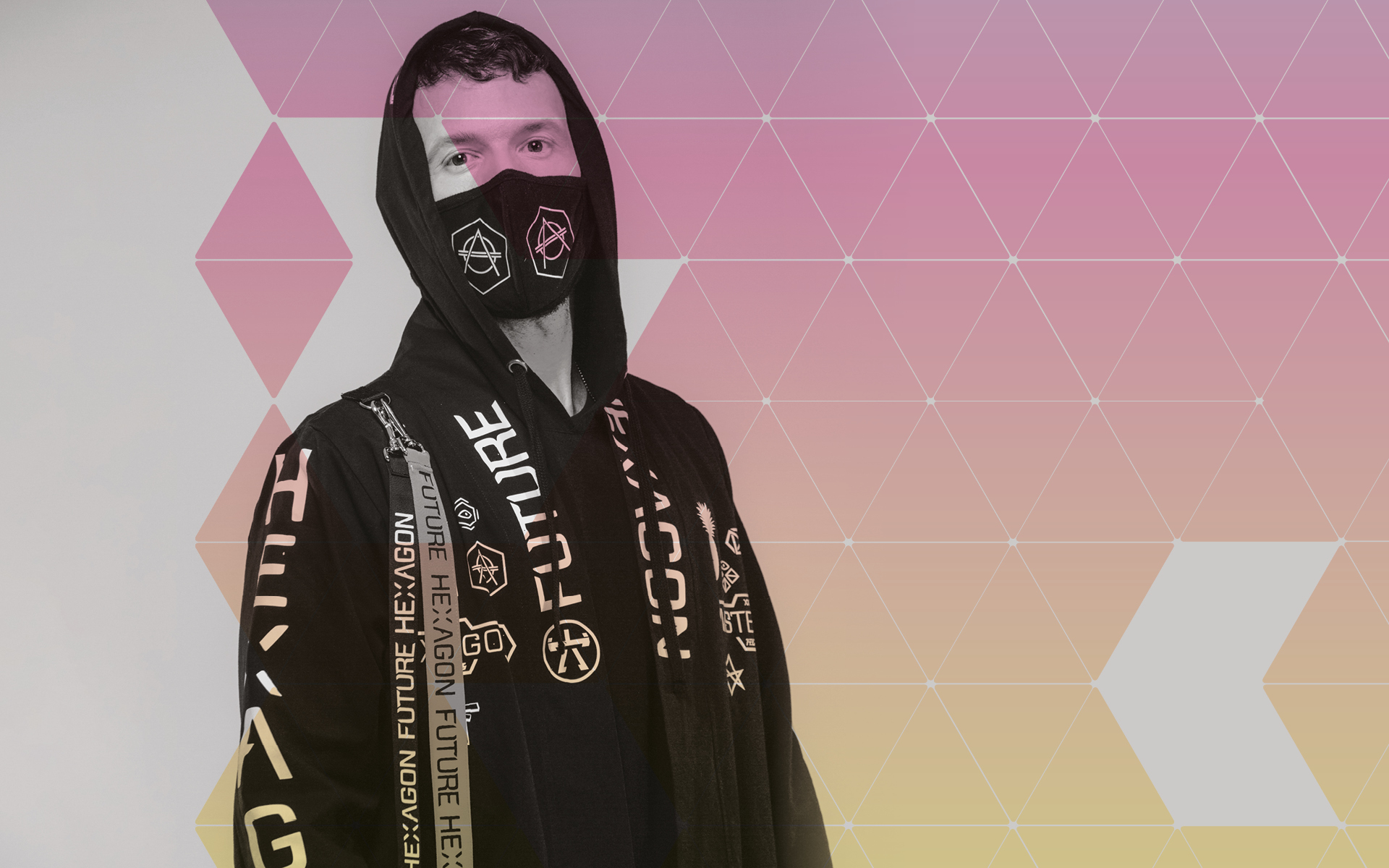
PADAWAN
The young Don was done with music, but, as was to be the case throughout his career, it seemed music wasn’t done with him. When an art is your passion, any opportunity to follow it can be impossible to resist, and after one of his releases garnered support from a certain Judge Jules, Don began flying around the world, warming up for Armin and Tiësto. Over the next few years, Don attempted to release an album on several more labels, but was repeatedly pushed aside in favor of established artists. Eventually he got sick of the rejection, and bored of playing the same DJ circuit in the Netherlands, and came up with an ingenious plan to make his own name.
Recognizing the new-found power of blogs, he decided to simply go back to just producing other people’s music, and hit up a number of bloggers to see if he could get them on side. It worked, and then some. Before he knew it, Don was the No.1 most blogged artist on blog aggregator Hype Machine, ahead of Lady Gaga and Kanye West. “The whole industry was like, ‘Who the fuck is this Don Diablo? And how is he everywhere? He’s remixing everything, this guy... it’s crazy!’” he exclaims. The blogs helped Don link up with other artists, one of whom was British vocalist Example. They spent some time together at Don’s studio and put together a track called ‘Hooligans,’ which they sent out to Ministry Of Sound.
“They were excited,” Don says, his tone shifting down a notch, “and they were excited about this new rapper Example.” Ministry signed the Brit, and Don once again got sidelined. “They made an album with him,” he begins. “I worked on like seven of the songs, two of them ended up on the album, and I made all the PA versions, kind of like a studio handyman, I guess. I made two or three remixes, so I really put a lot of time and effort into the Example project.”
When the time came to sort out contracts, Don says Ministry refused to compensate him, but told him that once Example broke through, the rapper could be a featured artist on one of Don’s unreleased tracks. “So they ended up sending me the platinum record for the album,” he says, “but there were no royalties, they didn’t pay me anything, nothing at all.” Don felt the time was right for the promised release, but Ministry had stopped answering his emails. “For some reason, I became a ghost — literally the ghost producer, that’s how I felt for a long time.” He contacted the label to inform them he was going to drop one of his Example tracks, in accordance with the deal, but Ministry denied any knowledge of the agreement, despite Don forwarding the email chain. “Then literally no one answered anymore,” he says. “And at a certain point after five/six emails, someone said, ‘Who are you?’” When Don questioned the legality of the situation, he says Ministry began to throw their weight around. “They said, ‘What are you gonna do? Bring it on. Bring the lawyers, we’re gonna crush you.’ Literally, that was said. And I was like, ‘I don’t have the money to do this.’”
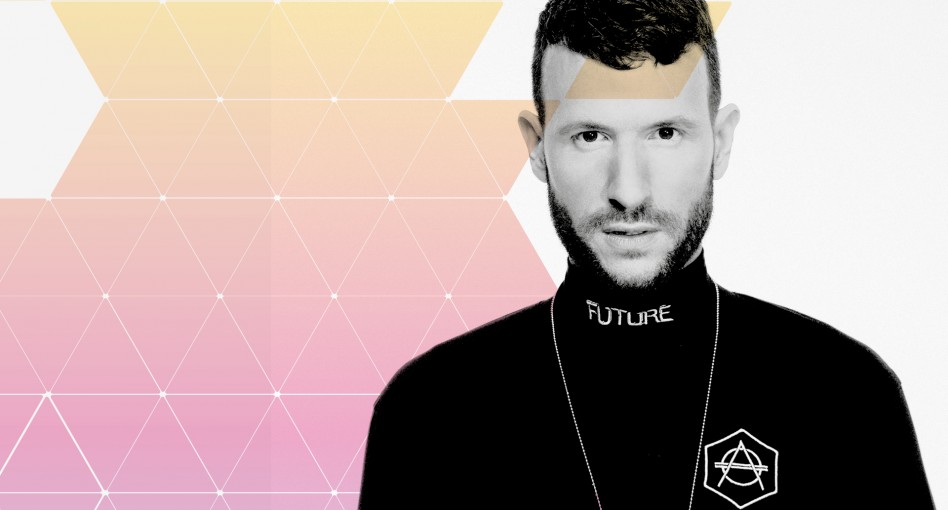
“They started yelling at me like, ‘You’re insane, why would you say no to this kind of money?’ And I’m like, ‘Because you need to stick by your principles.’ This kind of industry crushes you”
Don says this is just one in a host of similar stories over the same period, in which he was routinely beaten down by the industry. This tale, however, does have a flipside — with Don reportedly getting his own back somewhat, simply by sticking to his principles. After a while, a sync deal came up for one of the songs Don had made with Example. “I wrote half the lyrics and I produced and composed the whole song, so I had 75% publishing, and it needed to go through me,” he explains. “And this was a massive amount of money that could have changed my life.”
Don decided to block the deal. “I’m like, ‘Yeah, I don’t want my life to be changed, that’s blood money.’ And then another one came in, and they started yelling at me like, ‘You’re insane, why would you say no to this kind of money?’ And I’m like, ‘Because you need to stick by your principles.’ This kind of industry crushes you. And I said, ‘I may not be successful right now, I may just be a guy in a bedroom that you can totally, literally, destroy on the inside. But my spirit will not be crushed.’” Don was back where he’d begun; chewed up and spat back out. After eight more years of disappointment, he moved home to his parents’ house and once again decided to quit music. “I’m a very positive guy and I don’t want things to come across as negative, ’cause I overcame the struggle,” Don says. “But I’m not gonna lie, for many years I lived in a dark cave, not wanting to see anyone, figuring out what my purpose was here. Anxiety [and] depression are things that are not uncommon to me.”
IN DEMAND
But guess what? That wasn’t the end (well duh!), as Don had one final track to unleash upon the world. ‘Mezelluf’ was, as he puts it, his swansong. A rap that, “describes everything that I wanted to do for myself for many years,” the vocals themselves were delivered with a tongue-in-cheek, Lonely Islandesque tone, over a roaring, wubby monster of a beat. As far as Don was concerned, that was it. But someone out there was listening, and took that rap very seriously.
“I put that record online and I get a call from New York; it’s someone at L.A. Reid’s office,” he tells us. The legendary record exec, producer and A&R man wanted to fly Don to the States for a meeting, and Don — given he now had all the time in the world — was happy to accept. “I went there, I enter this massive office and there’s these four guys in like super shiny nice suits, it’s like a scene from a film, right, even talking about it. It was a pretty surreal moment,” he enthuses. “I walked in, and as I did, Pharrell just left the building. It was like, ‘Damn! I got a nod from Pharrell! I’m already done. I can quit. This was worth the whole trip.”
L.A. loved ‘Mezelluf,’ and naturally asked Don for more tracks. “I’m like, ‘You do know I’m not a rapper, right? It’s a joke. It was like a spoof, I’m the worst rapper in the world,’” Don remembers, cracking up. He made it clear that he’d quit the industry; however, L.A. was about to make him an offer he simply couldn’t refuse. “It was one of the top three record deals of the year that was under the table, that nobody knew about,” he says, explaining how he saw an opportunity to take back from the industry that had so often taken from him. “I never had the intention to go back into music, I only had the intention to get as much money out of the industry [and] to put that into a film.”
The deal required Don to move to London, where he met another A&R legend and an “amazing gentleman”: Mike Smith, of Columbia Records, who’d been enjoying success with Calvin Harris and Mark Ronson. “I wanted to show my dad I could be on a label with Bruce Springsteen and Bob Dylan, and that what I was doing was actually substantial,” Don says, and with Mike’s backing, he began to get inspired again.
“I got myself pumped up, started producing again, more and more music. And the funny thing was, after like 19 years of loyal service, being one of the best A&Rs in the world, Mike gets fired three weeks after I sign with them.” (At this point, DJ Mag is starting to wonder if Don might just be the unluckiest guy in the world.) The team around him collapsed, and Don was left high and dry with an office full of people only interested in legacy acts. He ploughed on, hosting sessions in his newly built studio, but he wasn’t happy. “At a certain point I was writing Christmas songs on a piano with Boy George, and I’m like, ‘What am I doing?’” And then, just as everything was falling apart, Don got the call from his mum: his dad was terminally ill.
FUTURE
Out of the tragedy of his dad’s death, however, Don found his path to success. “I was trying to figure out a way to channel the grief into something positive,” he says. It was during this time that he created the blueprint for future house in his Time trilogy (‘Back In Time’, ‘Anytime’ and ‘Knight Time’). He left his label and started to get tracks picked up by club DJs — one blew up after Swedish House Mafia played it at their (then) final gig.
“I remember watching the live streams of these massive festivals like Tomorrowland, Ultra, EDC, and I was watching in my underpants, sitting there one morning, cornflakes, y’know, like, ‘Wow, there are people dancing to my music and other DJs are playing this.’ So I think that’s where it became clear to me: I need to keep doing this, this is gonna be my superhero power, it’s this sound. And I haven’t stopped since then.” Don became obsessed with the concept of ‘future;’ something he says not only comes from a childhood love of all things sci-fi, but — as his mum told him — from actually being told by a doctor that he would die young, before he was even 10. “My mum always says, ‘You are the future, you are the guy that’s always been interested in what is to come, because you as a kid growing up thought you would never be able to see those things.’”
Now Don has become synonymous with the word ‘future.’ Not only the name of his 2018 album, and the genre he’s helped build from the ground up, it also adorns his Hexagon clothing line — a range that’s “both practical and aesthetical,” all based on Don’s own ideas. Much more than just merch, Don explains, “I wanna make stuff that I wanna wear, but all the stuff that I wanna wear is very expensive. I wanna make things for kids that can’t really afford that much but still wanna have a fly look, wanna have a specific look, to stand out — because clothing is another way to express yourself.” Going this step further than other DJs has rewarded Don in unexpected ways: for instance, he’s teamed up with Disney to design and release his own official Star Wars Hexagon line — a dream come true for a self-confessed fanboy. Don says he now hears about groups of kids from all walks of life meeting up at his concerts, wearing his clothes and forming new friendship groups — the Hexagonians.
EMPIRE
Specifically designed to work beyond his Don Diablo persona, Hexagon has also become a hugely successful record label — “It’s music that has a futuristic element and has emotion, those are my two criteria.” At the time of writing, Hexagon holds the No.1 spot in Beatport’s Future House chart (with Don’s edit of ‘King Of My Castle’ by Keanu), and a further 10 records throughout the rest of the top 100. “I don’t have a massive company,” says Don, “there are not 10 A&Rs walking around. It’s just me. I [spend] two hours a day listening to demos, I sleep three hours a day so I can run my clothing company, I can keep making my own music.”
We wonder how Don can sustain this level of work, which keeps him up all night answering emails? He says it’s like, “trying to keep your focus in a giant storm,” but his work ethic is deeply instilled, “because on one hand I remember when nobody called me, nobody emailed me, and on the other hand it could be over tomorrow, I could be gone.”
This year, Hexagon hosts its first festival arenas, with Tomorrowland top of the agenda, and as of January, Don has taken Hexagon completely independent, adding a distribution wing and starting his own management section to take care of some of the artists on the label. The success of his rapidly expanding empire has finally encouraged Don to let more people in to help out. He’s bought an office, hired some staff and is appointing new CEOs for various divisions, with himself still the owner and Creative Director. “If you can already do billions of streams with two guys, compared to all these moguls who have hundreds of people walking around... I think if we put our backs into it, we can grow bigger and bigger and be a good haven for artists to look up to,” he enthuses.
The only area that’s really off limits is his own social media, which has been lauded at events like ADE, and Don runs entirely himself. “You gotta do it yourself,” he says. “It all comes down to doing little ideas and doing whatever comes into your mind.” Simple as that! Bringing in help is allowing Don to focus on other projects, such as the Don Diablo documentary (now six years in the making), a new project called Citizen X with travel vlogger Jay Alvarrez and, eventually, his long-awaited film. “My biggest goal is to one day find happiness,” Don says, in that seemingly joking, but not quite, tone of his. “That’s the eternal quest, and I feel like I’m not drifting away further from it, I’m getting closer to it.”
